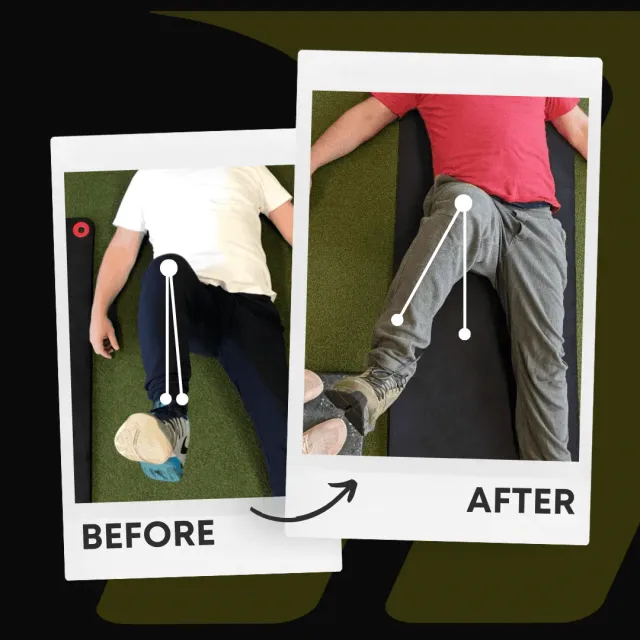The Benefits of Functional Range Conditioning
March 14, 2024 | Functional Range Conditioning

Stepping into the fitness world can feel like navigating a labyrinth of options. From the regimented routines of powerlifting to the all-encompassing world of “functional training,” each path promises results, but which genuinely leads you to move better, feel better, and live a life unrestricted by limitations?
Enter Functional Range Conditioning (FRC). FRC offers a unique approach beyond lifting weights or completing repetitive exercises. It’s a philosophy, a conversation with your body, and ultimately, an investment in your long-term health and well-being.
But how does FRC differentiate itself from its counterparts? Let’s delve deeper and see why the benefits of Functional Range Conditioning are both vast and impressive.
Beyond the Numbers Game: Moving Away from Traditional Strength Training
Powerlifting, focusing on lifting the most weight possible, often involves pushing your body to its absolute limits. While it can build impressive strength, it can also place significant stress on your joints and connective tissues, potentially leading to injuries.
FRC takes a different stance. It acknowledges that strength is just one piece of the puzzle. It delves into the quality of your movement, focusing on joint control, mobility, stability, and creating efficient movement patterns.
Think of it this way: imagine lifting a heavy box. Powerlifting might help you lift the most weight, but FRC ensures you lift it safely, efficiently, and without compromising your long-term joint health. This is a bit of an oversimplification, but it should make sense. FRC is about looking at the body from the inside out. It’s not about how you look when you lift; it’s about what’s happening in your joints that matters most.
Beyond the Generic: Unveiling the Nuances of “Functional Training.”
“Functional training” has become a popular buzzword, often associated with exercises that mimic everyday movements. While it shares some similarities with FRC by focusing on movement patterns, it can sometimes fall short in addressing individual needs and limitations. Thankfully, we’ve addressed this idea in another article. If you want to learn more about the downfall of “functional training,” check out this article.
FRC takes personalization to a whole new level. It starts with a thorough assessment that goes beyond measuring strength or body composition. For instance, we often run clients through a Functional Range Assessment (FRA) at Motive Training. The FRA looks at your movement quality, flexibility, and potential imbalances. This information forms the foundation for a personalized training plan that addresses your specific needs and helps you move with greater control and efficiency.
The Heart of FRC: Cultivating Resilience and Optimal Movement
So, what are the core principles that make FRC unique? Here are a few key aspects:
- Focus On Joint Health: Exercises are designed to improve joint mobility and stability, reducing your risk of injuries and allowing you to move freely throughout your day. Sure, we still strength train, but we do so in a way that addresses your mobility at the same time.
- Movement Control And Awareness: FRC emphasizes controlled, mindful movements, helping you understand how your body moves and identify areas for improvement. It probably won’t surprise you that most people don’t understand how to move properly (or how some joints move at all). We can use FRC to teach better movement practices that will lead to lifelong change and help mitigate injuries.
- Addressing limitations: Whether tight hamstrings or a weak core, FRC addresses your limitations and provides targeted exercises to overcome them. Again, if you’re in this camp, we highly recommend the FRA as your starting point.
- Lifelong Practice: FRC isn’t just a training program; it’s a lifelong practice that cultivates a deeper connection with your body and empowers you to move confidently and efficiently. For this reason, you’ll often see people doing their CARs outside the gym. We commonly see people doing their CARs while standing in line or hanging out at the airport.
The Takeaway: Embracing a Holistic Approach to Movement
Ultimately, the choice of training modality is a personal one. However, if you’re seeking a path beyond traditional muscle building or simply mimicking everyday movements, FRC offers a compelling alternative. It’s an investment in your long-term health, movement potential, and overall well-being.
Think of it as a journey of rediscovering your body, unlocking its full potential, and moving through life with confidence, strength, and freedom. So, are you ready to step beyond the limitations of traditional training and embrace the transformative power of Functional Range Conditioning?
Written by

Motive Training Staff
We’ll teach you how to move with purpose so you can lead a healthy, strong, and pain-free life. Our headquarters are in Austin, TX, but you can work with us online by signing up for KINSTRETCH Online or digging deep into one of our Motive Mobility Blueprints.




